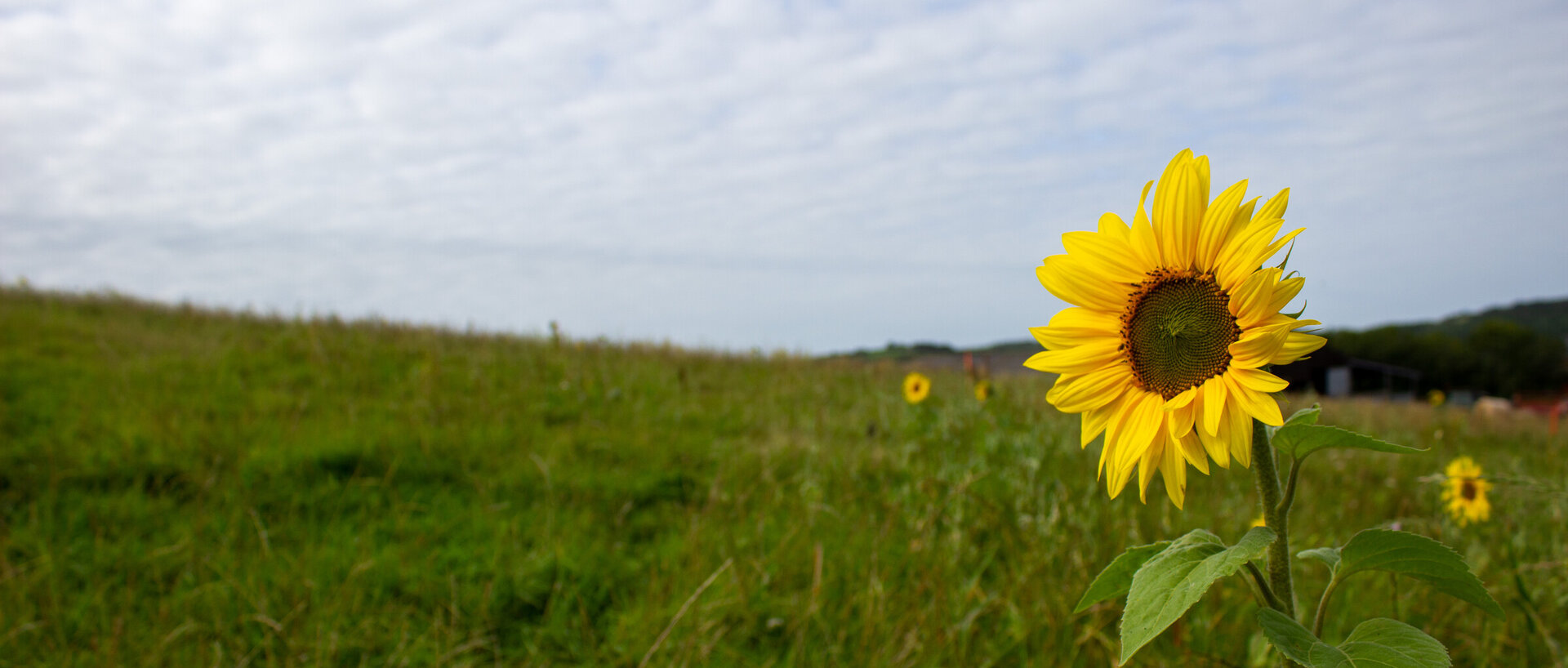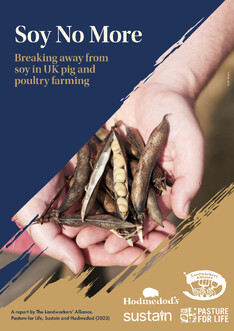
We were invited by Pasture For Life Association and Landworker’s Alliance to be part of the Soy No More report launch event in Westminster yesterday. This involved me (Amy) travelling up to London and visiting the Houses of Parliament to present in the Jubilee Room, to share our Redwoods Farm story of Soy Free farming.
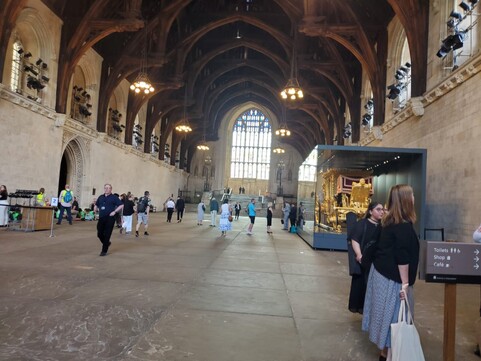
Soy No More Campaign
The Soy No More: breaking away from soy in UK pig and poultry farming report launched in Westminster on Monday 19 June 2023 to much interest, with MPs and press attending the event.
The report is a collaboration between the Landworker’s Alliance, Pasture for Life, Sustain UK and Hodmedod’s. It is aiming to raise awareness about the land-use change and deforestation associated with the global soy animal feed supply chain, exploring agroecological pig and poultry.

As part of this campaign, Pasture for Life are also hosting a series of farm tours to share knowledge on soy free farming methods. We will be welcoming them here to Redwoods later in the summer (more news on that coming soon!).
To read more about the campaign, you can visit the Landworker's Alliance Soy No More webapge (which also contains the report).
To download a copy of the report, click on the image below:
Why is Soy in animal feed an issue?
The UK imports around 3 million tonnes of soy for animal feed and WWF estimate the land required to grow this soy amounts to around 1.7 million hectares (an area nearly the size of Wales).
Over the last 50 years, global production of soy has increased faster than any other crop, from 27m tonnes to 350m tonnes per year. Over half this soy (and the majority of the UK’s soy imports) comes from South America, either from the Amazon or from other biodiverse regions. As a result of increased soy production and other land-hungry industries, these areas continue to be vulnerable to high rates of deforestation.
‘Deforestation-free soy’ just pushes production to other vulnerable areas, so is not the answer. It can also indirectly cause deforestation through pushing cattle out of their pastures and the rainforest is cleared to make way for them.
The solution lies in reducing our demand for soy with sustainable alternative feeds, such as food waste, farm by-products and rotational grazing systems which allow access to insects as part of the forage, with the report making 8 policy recommendations.
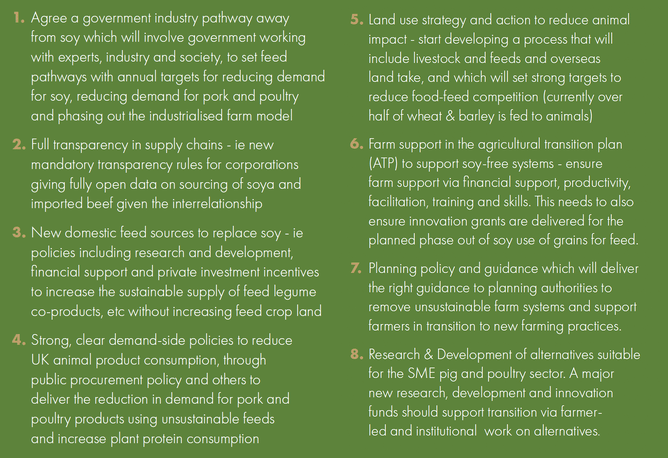
Why share our Redwoods Soy Free story?
As you know, if you’ve read our website or spoken to us at farmer’s markets, we’re passionate about pasture raised! Soy free became an extension of this, as we looked to change to locally sourced ingredients for our animal feeds as much as possible.
Speaking with many feed merchants, we were initially told soy free poultry feed was 'impossible to create', but we eventually found a specialist poultry nutritionist at our local feed mill who was keen to work with us to find the answer.

Our feed merchants created a soy-free chick feed, which is a complete feed, providing all the nutrients required for the growth stage from day one to 4 - 6 weeks.
We then developed a feed for the older birds which makes up 75% of their feed which is locally grown, with 85% coming from within 7 miles of our farm. The other 25% of the feed is made up of the soy-free chick feed. This growers feed is not complete on its own, but as our chicken is pasture raised, they forage for the remaining nutrients they need in the pasture, moving every day, so they always have fresh supply. We then became the first soy free chicken producer in the UK!
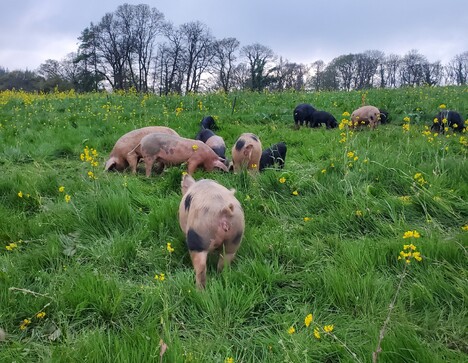
As our pigs are pasture (or woodland) raised, this means they too spend a lot of time foraging for food, with their supplemental feed ration also being soy free and 85% of the ingredients are grown within 7 miles of the farm with hopes to increase that as we continue to make connections with local arable farmers.
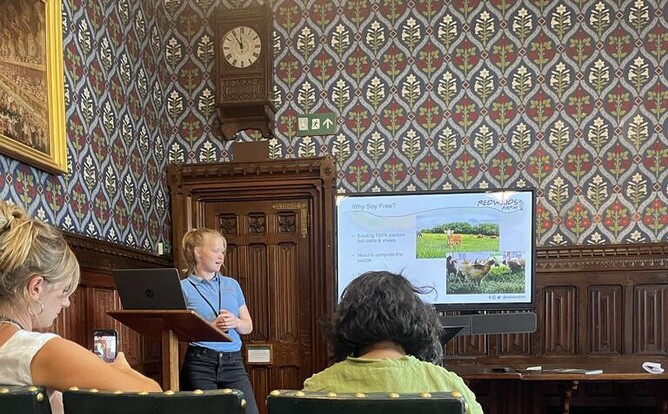
I was proud to be representing Devon & also the next generation of farmers, especially flying the flag for regenerative agriculture at Westminster. Sharing our Soy Free story at the event was a really encouraging experience. It showed me that there are such great organisations working towards climate solutions without trying to eliminate livestock, which they understand to be a vital part of maintaining the ecosystem. It also demonstrated that we need to work harder to share our story, although it would have been good to see more MP support for organisations and individuals working so hard to fight for our climate in this context.
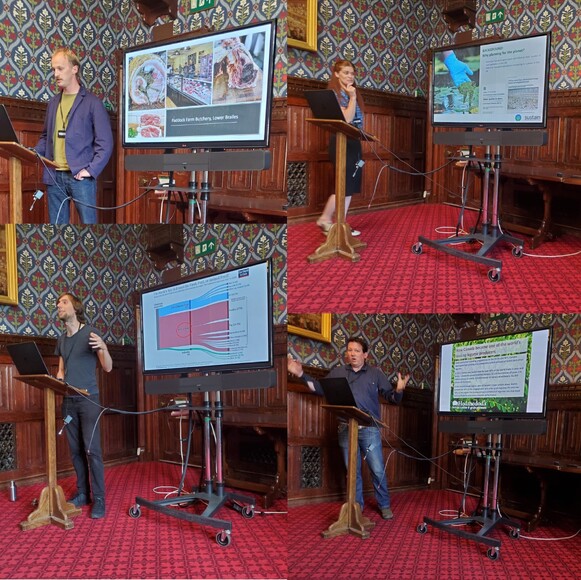
How do we meet the challenges going forward?
As I spent the train journey home to Devon reflecting on the day, it was interesting to see how those of us presenting approached the problem of soy from such different outlooks, but all came to similar solutions
we need to replace the soy with UK grown proteins
pigs and poultry should be fed with processed food waste
meat consumption should be reduced
the meat that we eat needs to be of a high quality nutritionally and environmentally.
It has also become increasingly apparent that we need to keep the conversation going to foster change. I talked with our local MP, Richard Foord, about the importance to connect more farmers who are already, or who are seeking to farm regeneratively. Not only can we provide support to each other, but there is the potential to create more local food systems by connecting arable farmers with livestock farmers, to create a more holistic farming model.
However, it's not just about encouraging other farmers to farm in this way, we also need to show the non-farming community how we farm, along with the environmental and nutritional benefits of doing so.
While as a nation we do need to reduce our meat consumption, not all livestock farming methods should be tarred under the same brush. Sweeping generalisations have been made about livestock farming being environmentally harmful. Pasture based farms can be extremely beneficial, not only the environment, but also to increase the nutritional value of the meat if managed correctly. We need to increase the overall number of regenerative farms to sustainably produce a larger market share of the total meat consumed. It's about quality, not quantity!
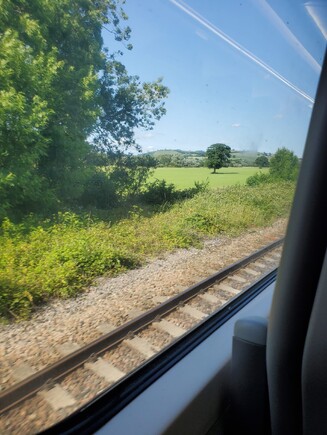
We spend time engaging with our customers to explain our produce and farming methods, but this sort of education needs to be officially rolled out nationally to support all regenerative producers, with clear messaging to reduce the confusion and misinformation that is currently abundant, along with reasoned debate rather than polarising opinions.
In the meantime, we’d definitely encourage you to support your local regenerative producers like us! And if you haven't already, the Soy No More report is a worthwhile read (even if you just read the 2 page Executive Summary at the start of the report).
